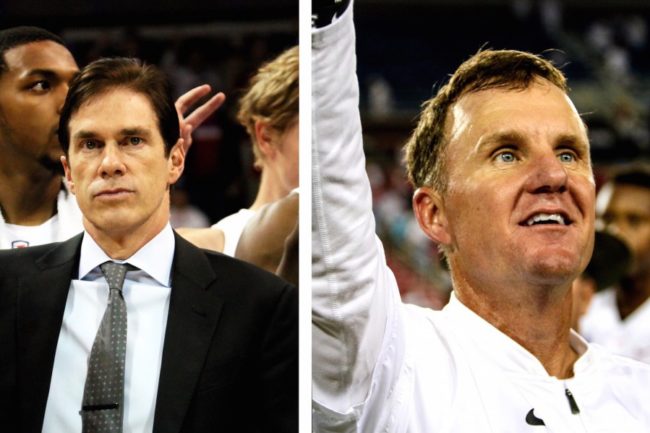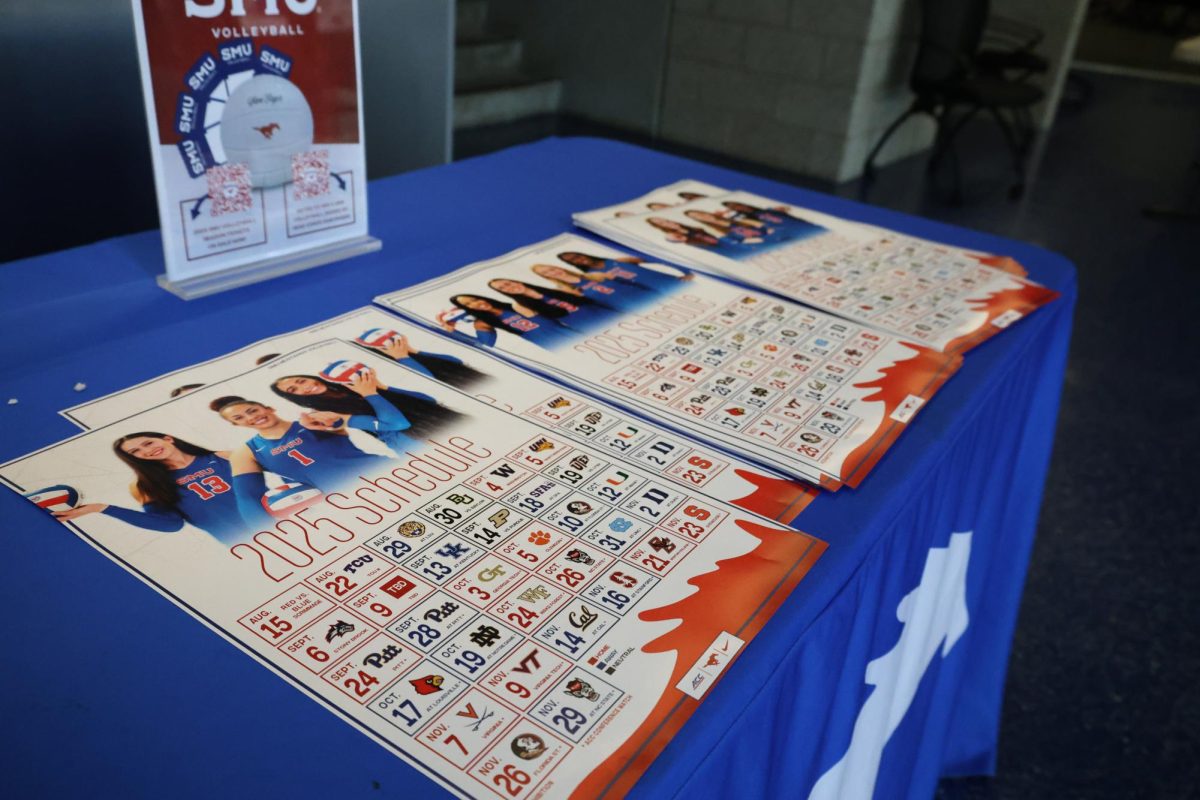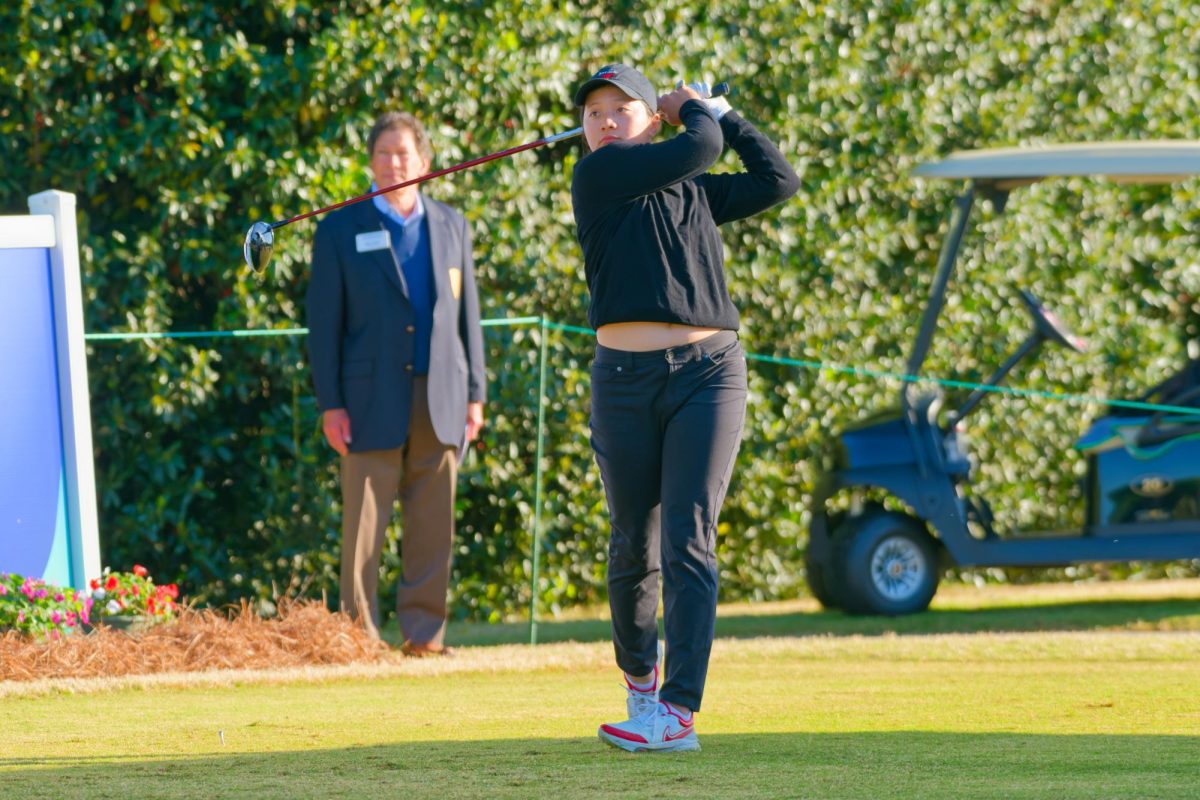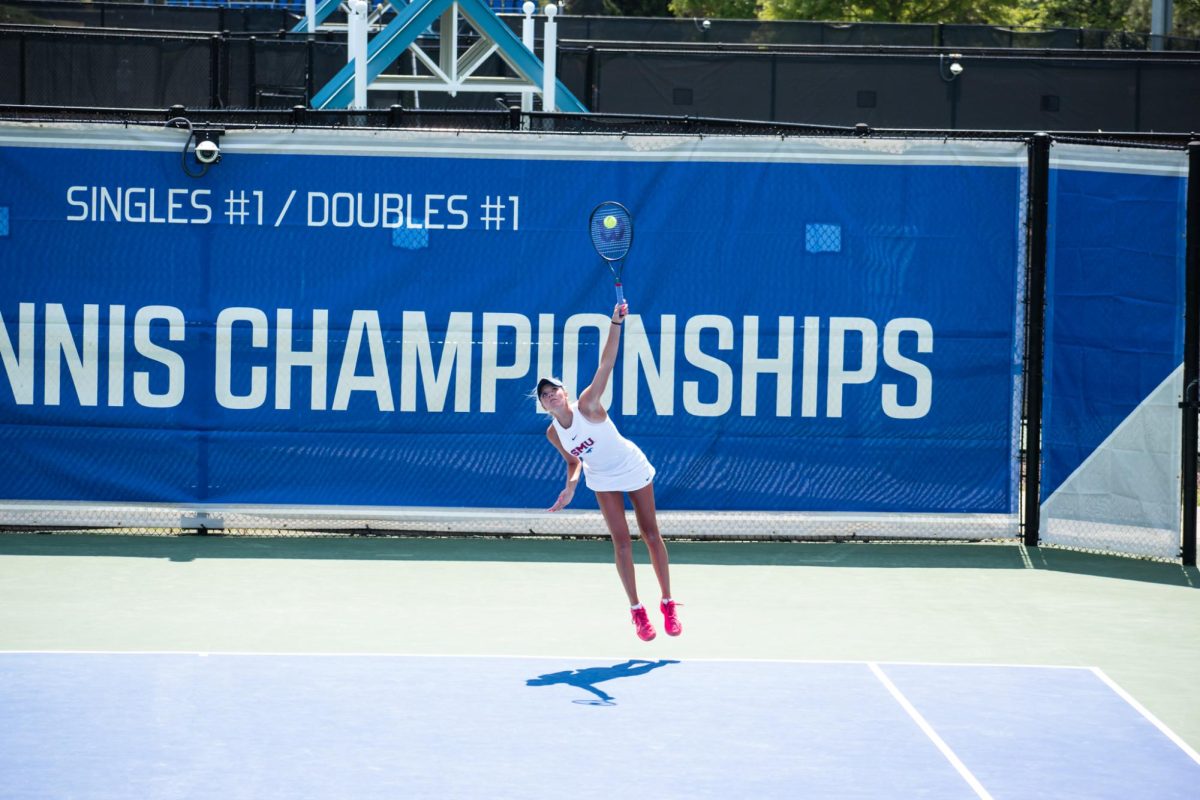Tim Jankovich walks into a Duncanville, Texas gym and sits down in the bleachers. It’s the middle of the July recruiting period, where coaches travel around the country to watch and evaluate recruits at AAU tournaments. This particular game is one of about 10 he watches that day. For this one, though, he takes a break from evaluating. He is watching his son play.
Michael Jankovich is a junior at Dallas’s Jesuit College Preparatory School. His AAU team is playing in the tournament. Jankovich, the SMU men’s basketball head coach, takes an hour and a half break from his recruiting duties to be a dad. He watches Michael’s team get a 70-59 win, then leaves the gym to head to the next game and start scouting again.
A father took time out of his work to see a son play. Nothing unusual. But Jankovich didn’t wait to meet Michael post-game. Technically, he couldn’t have, because college coaches aren’t allowed to speak with the players at the tournament. But if they were, Jankovich would have done the same thing, because of a decision he made long ago: He isn’t very involved in his son’s basketball pursuits.
Jankovich’s decision represents an overlooked part of life for so many college coaches: balancing their job with their involvement in their son’s athletic pursuits. The process of finding that balance can be difficult, stressful, enjoyable, pressure-filled, ever-evolving, a conflict of interest and a blessing all at once.
College coaches have an elite level of knowledge in their particular sport, so staying away from their son’s pursuit of the same sport is hard. They know it better than anyone else who could coach their son in youth athletics. But they recognize the difficulties their presence could bring to their sons.
A coach’s son faces more pressure than other youth athletes. If he plays the same sport his dad coaches, he immediately faces outside pressure and heightened expectations just because of his dad’s status and their shared last name. The son also has to fight off the internal feeling that his first priority in playing the sport is to impress dad.
“You let it evolve, you let them become who they are and you give them assistance,” Jankovich said. “The dangerous thing with kids is to make them be something that’s not inside of them.”
The coach has to balance his view of his son’s best interests with his son’s view of them. They’re not always equal. If son plays the same sport dad coaches, dad has to find the level of involvement that minimizes pressure on his son. Some coaches are very involved. Some aren’t. The reasons differ. Jankovich’s main concern is ensuring Michael never feels pressure to impress him.
“I never, ever for one second want him to think that our relationship has anything to do with how well he plays basketball,” Jankovich said.
“The relationship is 1,000 times more important to me than the basketball career.”
There’s no perfect algorithm for every situation. But pressure is always the one constant for both coach and son.
“My only regret for him, to be honest, is me,” Jankovich said. “Because it does put a target on your back. I don’t care what anybody says. There is more pressure on coaches’ sons or a coaching family.”
“I regret that with my job, that maybe he has to live with more [pressure].”
Jankovich once had an idea to avoid exposing Michael pressure altogether: guide him toward a sport other than basketball.
“I tried tennis, football, maybe anything else,” Jankovich said. “Honestly, I thought it’d be kind of fun. My entire life had been in basketball.”
It didn’t work. Michael stayed with basketball. Jankovich decided that he would only give Michael pointers and advice if he asked for them. It’s his way of telling Michael his worth as a son isn’t based upon his skills on a 94-foot wooden floor.
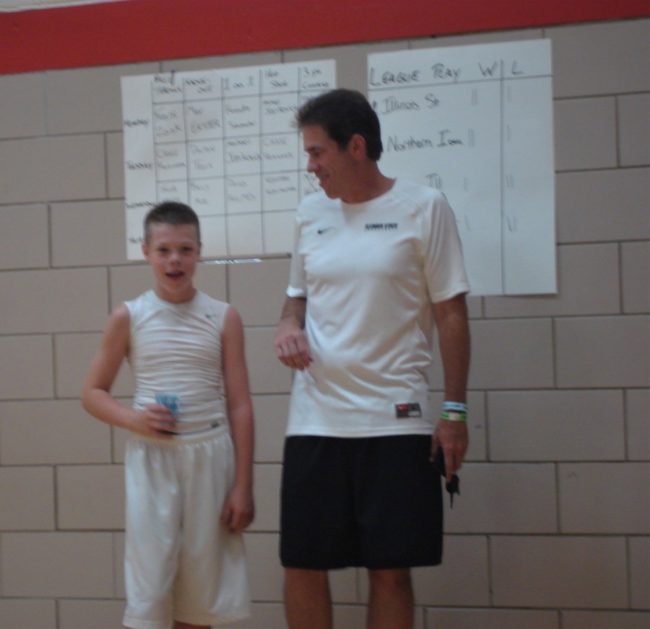
That approach helped Michael stay in basketball, but he also grew to like it for his own reasons. His father’s 34 years as a college coach or all-conference selection as a player weren’t his motivations or burdens.
“I stuck with it because it was what I loved to do,” Michael said. “Part of it is being around it all the time. It becomes a part of you, really. It’s pretty hard to just get rid of it, so I just fell in love with it.”
“I didn’t choose basketball because he made me, I chose it because that’s what I wanted to do.”
Even with such a precedent set, there’s still a need for caution. Especially after a loss. After losing, the son’s high school coach will have already voiced his displeasure or called for improvement in a certain area. Sometimes, the last thing the son needs is another voice in his head. Even if it’s dad. Even if it’s well-intended.
“Sometimes, after a bad game, you just don’t want to hear it,” Michael said. “You want to be left alone.”
“He’s on the better side of that.”
Michael isn’t the only son of an SMU coach who plays his dad’s sport. Chandler Morris is a freshman quarterback at Highland Park High School. His father is Chad Morris, SMU’s head football coach.
Morris adopted a similar stance to Jankovich. He’s never coached Chandler, who works with Dallas-based private quarterback coach Kevin Murray. But he’s a former high school quarterback who has a reputation for his impressive work with quarterbacks at the college level.
“There has to be a separation. When I go watch him play, I can’t come back and critique him,” Morris said. “If he asks, we’ll talk.”
Where Morris’ involvement extends beyond Jankovich’s is his role as a motivator. He reminds Chandler that he needs a certain amount of passion for football if he wants to play it in college. He sees motivational assistance as a dad’s job, not a coach’s. But if Chandler came to him and said he wasn’t interested in continuing football, Morris would accept it. It’s Chandler’s choice.
“He’s pretty self-motivated,” Morris said.
No matter what level of involvement a coach has with his son’s athletic pursuits, he still rarely can watch a game without forming some opinion of his son’s performance or how he is used in a game. Coaches can’t simply turn off their expert-level knowledge for a game. If their approach is anything like Morris’ or Jankovich’s, they best way to bond with their son over their common passion for the sport is watching it together.
Jankovich and Morris say they watch games on TV with their sons when they can. Both sons are also regulars at their dad’s games. Just like both dads offer their sons a small pointer or two, both sons usually have something to say to their dad after a game.
“There’s times he’s helping pick me up,” Morris said. “If we, [SMU], didn’t play as well, I’ll sometimes come home down in the dumps. He’ll say something like, ‘Hey dad, we’re building something special.’ He’ll see my head’s down a little bit and pick me up.”
If his son’s high school career prospers, every coach faces the same problem. Eventually, dad needs to decide if son is good enough to play for dad’s college team. If son is a worthy college player, both he and dad have to decide if they want to bring the coach-player relationship into their father-son relationship. It’s the ultimate challenge of balancing dad’s best interests for son, son’s best interests for himself, dad’s view of son’s skills, and pressure surrounding the son’s college decision.
There are clear negatives. At the college level, fans sometimes accuse coaches of playing “daddy’s boy” too often.
“As a coach’s kid, you live in a glass house,” Morris said.
But positives exist too. At an age where sons become more independent of their fathers, the coach-dad-player-son relationship offers a chance for the two to grow closer by sharing a passion.
“That’d be one of the surreal moments of my life, to be able to coach my own son,” Morris admitted.
Georgia State head basketball coach Ron Hunter coached his son, R.J., for three years. R.J. now plays in the NBA. When R.J.’s recruiting process started, Hunter left all the responsibility to one of his assistant coaches. He told SB Nation that he disappeared from the process so R.J. would see the appeal of Georgia State itself, not Georgia State as his dad’s team. R.J. picked family anyway.
Michigan running backs coach Tyrone Wheatley and his son, T.J., had an additional wrinkle. Michigan was not only dad’s employer, but the school at which dad was an All-American and became a first-round NFL draft pick. He took the job at Michigan about a month before National Signing Day, when T.J. – a tight end who held offers from Alabama, Auburn and USC, among others, would make his college choice. Right as T.J.’s recruiting process was winding down, the door swung open. He had a chance to play for dad. He took it. Wheatley Sr. was briefly conflicted.
“That young father standing over his son’s crib whispering the words to “The Victors” wanted him to choose Michigan. Continue the legacy,” Wheatley Sr. wrote in a January column for The Players’ Tribune. “But a more mature side of me — the one who wants his son to blaze his own trail and carve his own legacy — didn’t care where his son went. He just wanted him to make the decision that was right for him.”
Jankovich and Morris aren’t at this point with their sons. Neither knows the skill level their sons will reach yet. They do know the eventual tell-all discussion’s crucial element: honesty.
“I’ll just make sure he knows that every single thing I tell him will be in his best interest and not mine,” Jankovich said.
Until then, Jankovich is happy to take a break from a long day of recruiting to watch and support his son. Being a dad is a job too, after all.



